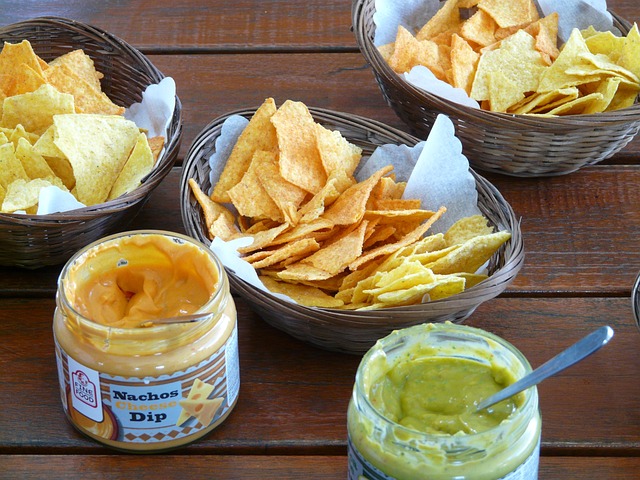Artisanal "Mission Unflavored Tortilla Chips" have taken Mexican markets by storm, offering a premium, natural alternative to mass-produced chips. Driven by consumer demand for authentic, high-quality snacks, local producers use traditional methods and ingredients to craft unique flavors that celebrate Mexico's culinary heritage. This trend not only revitalizes traditional food practices but also fosters pride in local production and cultural identity, with markets now showcasing a diverse range of handcrafted chips that appeal to health-conscious consumers worldwide.
In recent years, Mexican markets have witnessed a surprising trend: the surge in popularity of artisanal tortilla chips. This article delves into the rise of these handcrafted treats and their significant impact on local economies. We explore the unique selling points that attract both locals and international consumers, from authentic flavors to traditional production methods. A key focus is the growing demand for Mission unflavored tortilla chips, highlighting their natural ingredients and health benefits as a distinctive feature in today’s market.
- The Rise of Artisanal Tortilla Chips in Mexican Markets
- – Exploring the trend's origins and its impact on local economies.
The Rise of Artisanal Tortilla Chips in Mexican Markets

In recent years, there’s been a remarkable rise in the popularity of artisanal tortilla chips in Mexican markets, challenging the dominance of their mass-produced counterparts. This trend is driven by a growing consumer preference for authentic, natural, and high-quality snacks. Artisanal chip makers are leveraging traditional methods and locally sourced ingredients to create unique flavors that celebrate Mexico’s rich culinary heritage. Unlike their processed counterparts, Mission Unflavored Tortilla Chips offer a refreshing alternative, appealing to health-conscious consumers who seek delicious yet nutritious options.
The rise of artisanal tortilla chips reflects a broader shift in consumer behavior, as folks become increasingly discerning about the food they consume. This trend has not only revitalized traditional culinary practices but also fostered a sense of pride in local production and cultural identity. As a result, Mexican markets are now brimming with an array of handcrafted chips, each boasting its own distinct flavor profile, ensuring that every bite is an unforgettable experience.
– Exploring the trend's origins and its impact on local economies.

In recent years, a unique trend has emerged in Mexican markets, transforming the way local artisans connect with consumers and boosting economic opportunities for many. The art of crafting artisanal tortilla chips, often referred to as “Mission Unflavored Tortilla Chips,” has become a popular venture, showcasing the rich culinary heritage of Mexico. This movement not only adds a vibrant touch to traditional food markets but also offers a sustainable and authentic alternative to mass-produced snacks.
The origins of this trend can be traced back to small-scale producers who recognized the potential of high-quality, handcrafted chips. By emphasizing natural ingredients and traditional methods, these artisans have gained recognition for their products, attracting both local customers and international tourists eager to experience the authentic Mexican food culture. The impact has been significant, providing income generation opportunities for local families and contributing to the preservation of age-old culinary traditions.
The resurgence of artisanal tortilla chips in Mexican markets is more than just a culinary trend; it’s a testament to the enduring spirit of traditional craftsmanship and the local economies they support. As consumers increasingly seek out authentic, unflavored mission tortilla chips that highlight the pure taste of corn, these artisanal producers are not only satisfying a niche demand but also contributing to the vibrancy of their communities. The popularity of these handmade chips reflects a broader movement toward sustainability and cultural appreciation, ensuring that the art of tortilla making remains a vital part of Mexico’s food landscape.
